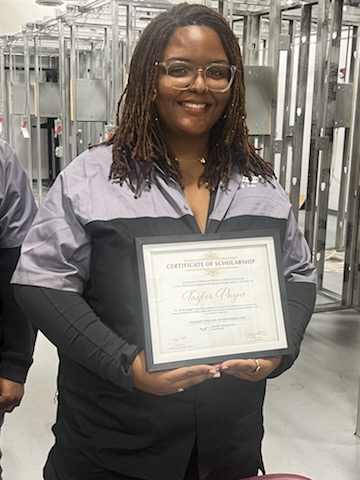How to Become an Electrician
| Update: November 25, 2025
Electricians keep the lights on – literally – and their skills power everything from homes and schools to hospitals and commercial buildings. Getting started doesn’t require a four-year degree, but you do have to train to become one.
If you're exploring how to get started as an electrician, UEI College’s Electrician Technician Program offers hands-on training to help you get started. Keep reading to learn what the path looks like and what you can expect along the way.
What Is an Electrician?
Electricians install, maintain, and repair the electrical systems that power our homes, businesses, and everything in between. Whether it’s wiring up a brand-new building, fixing an issue with a circuit panel, or working with solar or energy-efficient systems, electricians make sure everything runs in top form.
Some electricians focus on wiring new buildings from the ground up, while others handle repairs, routine maintenance, or even cutting-edge work with solar and green energy systems. They work with a wide range of tools and equipment, and safety is always a top priority. It’s a hands-on job that calls for sharp attention to detail, solid problem-solving skills, and a strong understanding of how electrical systems work.
Electrician Career Paths
One of the best parts about becoming an electrician is how many directions your career can go. With additional training and licensure requirements, here are just a few electrician career paths:
- Journeyman Electrician: Fully licensed and able to work independently on jobs of all sizes.
- Master Electrician: A step up in responsibility and pay. You can supervise other electricians and pull permits.
Electricians can also specialize based on the environments where they work:
- Residential Electrician: Help families stay safe and comfortable in their homes. These professionals specialize in installing and maintaining electrical systems in houses and apartment buildings.
- Commercial Electrician: Work on larger-scale projects in places like office buildings, schools, shopping centers, and restaurants. Their work includes installing and maintaining wiring, lighting systems, and even security features.
- Industrial Electrician: Drawn to big machines and high-powered systems? These specialists work in manufacturing plants, factories, and industrial sites, handling heavy equipment, control panels, and complex power systems.
Becoming an electrician could be the spark that lights your future. At UEI College, our Electrician Technician Program offers practical training and supportive instructors to help you succeed. Find a UEI campus near you now.





